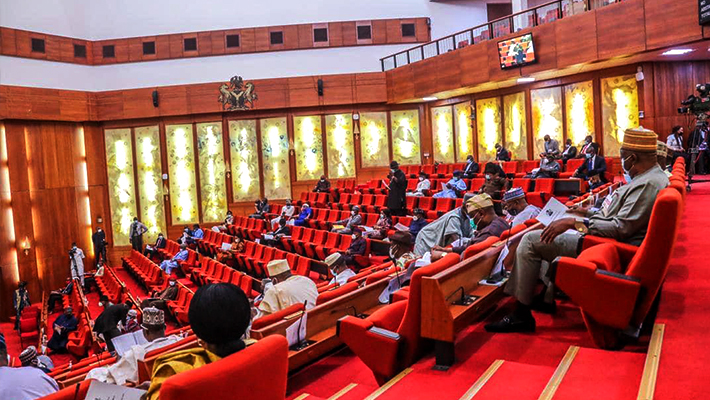By Milcah Tanimu
New Bill Seeks to Make Naira the Sole Legal Tender for Domestic Transactions
The Nigerian Senate has introduced a bill to ban foreign currencies, including the US Dollar and British Pound Sterling, for domestic transactions. The bill, titled “A Bill for an Act to Alter the Central Bank of Nigeria Act, 2007, No. 7, to Prohibit the Use of Foreign Currencies for Remuneration and Other Related Matters,” has passed its first reading.
Key Features of the Proposed Bill
The bill was introduced by Senator Ned Nwoko, Chairman of the Senate Committee on Reparations and Repatriation. It seeks to make the Naira the sole legal tender for all payments, salaries, and financial transactions in Nigeria.
Senator Nwoko criticized the use of foreign currencies in the country. He called it a “colonial relic” that weakens the value of the Naira and hinders Nigeria’s economic independence.
Senator Nwoko’s Remarks on Foreign Currency Usage
Senator Nwoko said, “The use of foreign currencies erodes the Naira’s value, fosters dependency, and harms Nigeria’s economic sovereignty.” He believes the bill will restore confidence in the Naira and reduce unnecessary economic pressure.
Impact of the Bill on Nigerian Economy
If passed, the bill will prohibit using foreign currencies for payments such as salaries, bonuses, and other forms of remuneration. It aims to promote the Naira, strengthen the economy, and reduce reliance on foreign currency.
Supporters of the bill argue that it will stabilize the economy and boost the Naira’s value. However, critics worry about Nigeria’s dependence on foreign currencies for international trade, remittances, and private sector activities.
Conclusion
The bill is a significant step in reshaping Nigeria’s financial system by enforcing Naira-only transactions. As discussions continue, stakeholders are weighing the benefits and challenges of moving away from foreign currencies.





